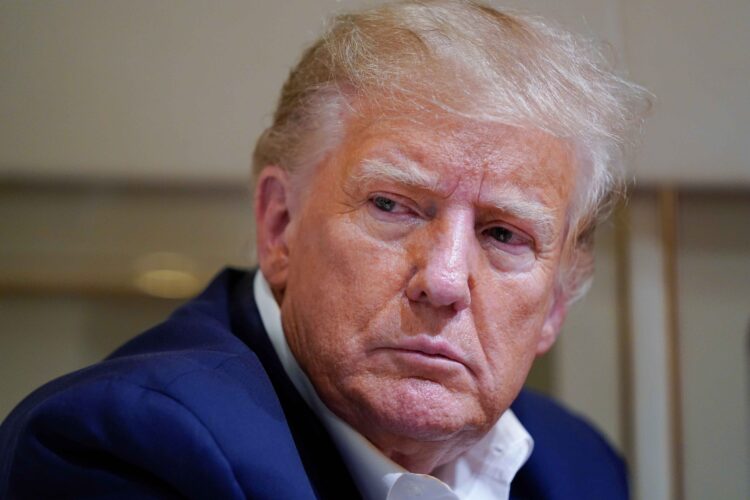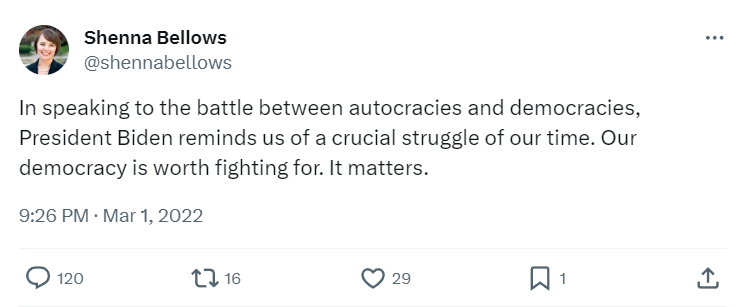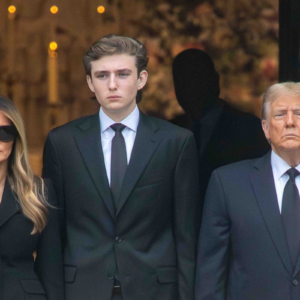On Thursday, the state of Maine ruled that former President Donald Trump cannot appear on the ballot in the 2024 primary election due to his role in the Jan. 6th, 2021 Capitol riot. The decision claimed that Trump’s alleged spreading of false claims of voter fraud and his encouragement of violence against lawmakers constituted insurrectionary behavior.
This follows a Colorado decision to the same effect: that state’s Supreme Court decided to bar Trump in a 4-3 vote, alleging that he was involved in an “insurrection.” Citing the third section of the 14th Amendment of the U.S. Constitution, which made it illegal for anyone involved in an insurrection to hold office (passed to clamp down on members of the Southern Confederacy). However, Republicans appealed the decision, an effort that proved successful only hours before the Maine decision was announced.
This decision was made by Maine’s Democratic Secretary of State Shenna Bellows, using the same insurrection clause in the Constitution that was cited in the Colorado case. Bellows is now the first election official to take unilateral action on the issue.
Bellows’ decision was preempted by a nominally bipartisan Maine watchdog group of former lawmakers who raised the challenge, along with other Maine residents. The lawmakers (Kimberley Rosen, Thomas Saviello, and Ethan Strimling) said, “[Bellows] stood on the side of democracy and our constitution in her decision to bar former President Donald Trump from Maine’s ballot.”

Learn the benefits of becoming a Valuetainment Member and subscribe today!
In a 34-page document regarding the decision, Bellows wrote: “I do not reach this conclusion lightly … I am mindful that no Secretary of State has ever deprived a presidential candidate of ballot access based on Section 3 of the Fourteenth Amendment. I am also mindful, however, that no presidential candidate has ever before engaged in insurrection.”
Officials in Trump’s campaign have already said they will appeal the decision. “We are witnessing, in real-time, the attempted theft of an election and the disenfranchisement of the American voter,” Trump spokesman Steven Cheung said. The Trump camp is expected to argue that such rulings are “undemocratic.”
The Supreme Court of the United States is set to decide whether Trump is legally allowed to pursue his 2024 election bid. Its ruling is expected to be the final say on the matter, and will either overturn or enshrine the decisions made by the states. “It is clear that these decisions are going to keep popping up, and inconsistent decisions reached (like the many states keeping Trump on the ballot over challenges) until there is final and decisive guidance from the U.S. Supreme Court,” said Rick Hasen, a professor of law at the University of California-Los Angeles (UCLA).
After the decision was made, Bellows’ past social media posts expressing left-of-center talking points were resurfaced by critics, who alleged that she was an impartial arbiter and acted on bias.
In a subsequent appearance on CNN, Bellows defended her decision by reiterating a point she made in her commentary. “Again, I am so mindful–and I said this in my decision–that it is unprecedented, no Secretary of State has ever deprived a presidential candidate of ballot access based on Section Three of the Fourteenth Amendment… But no presidential candidate has ever engaged in insurrection and been disqualified under Section Three of the Fourteenth Amendment.”
Maine Democrat Sheena Bellows: “No secretary of state has ever deprived a presidential candidate of ballot access based on section 3 of the 14th amendment. But no presidential candidate has ever engaged in insurrection”https://t.co/jeIF8ux5UTpic.twitter.com/xdlYTW3u7S
— Jack Poso 🇺🇸 (@JackPosobiec) December 29, 2023



















Add comment